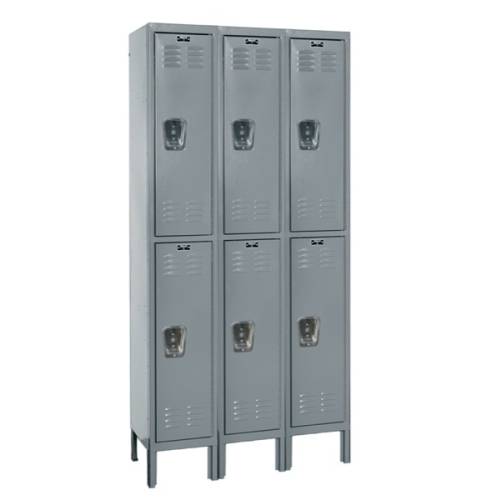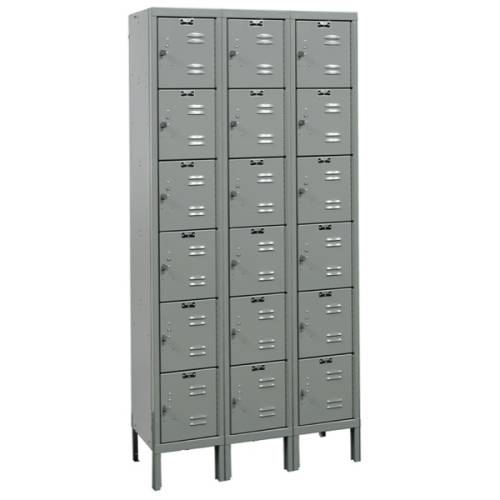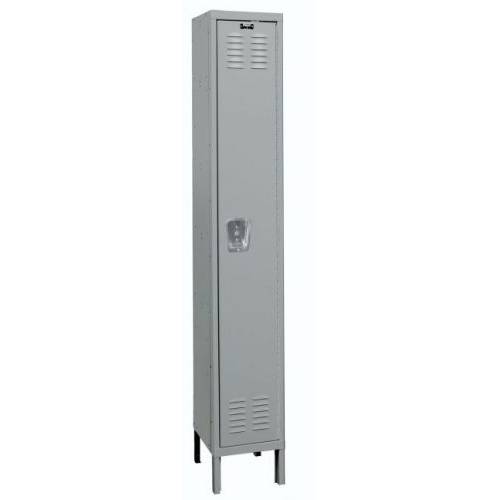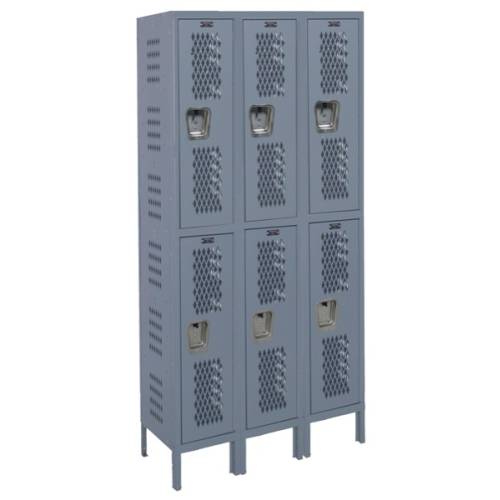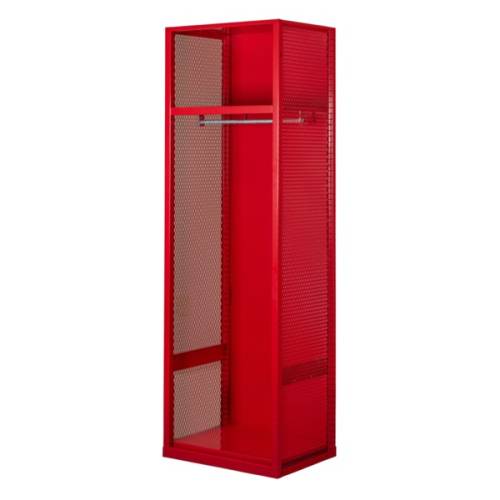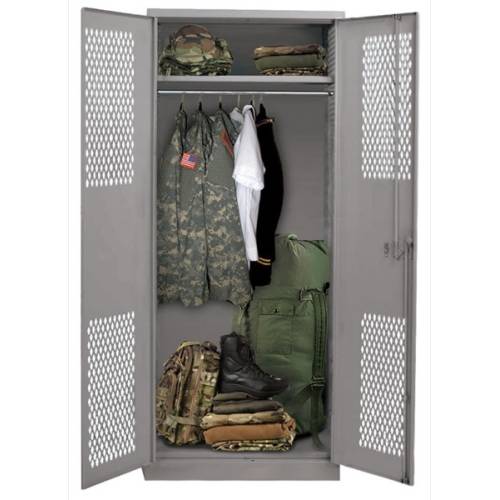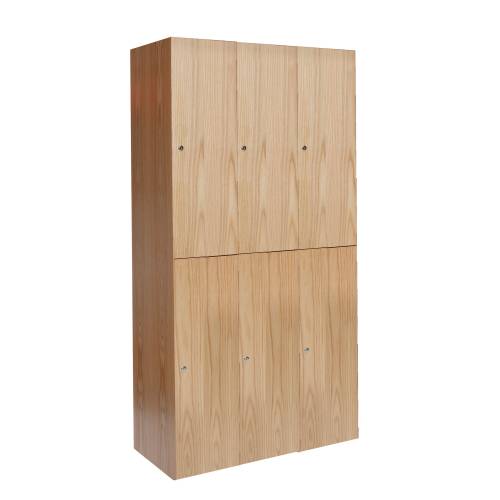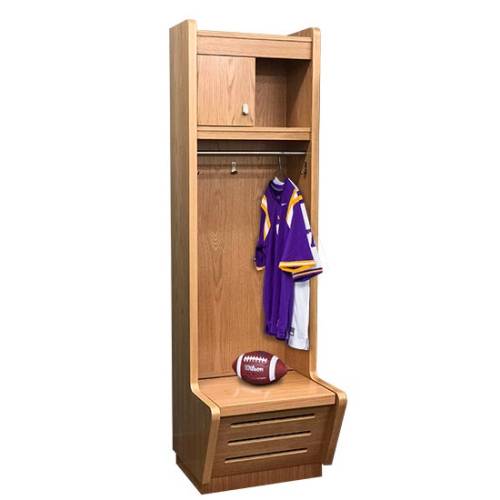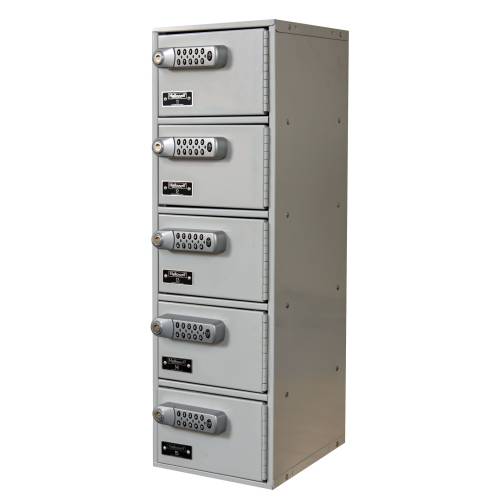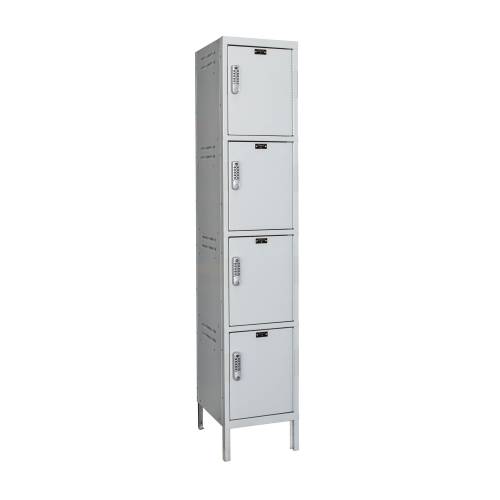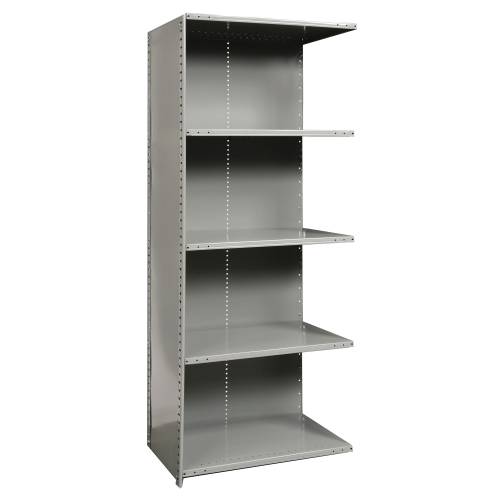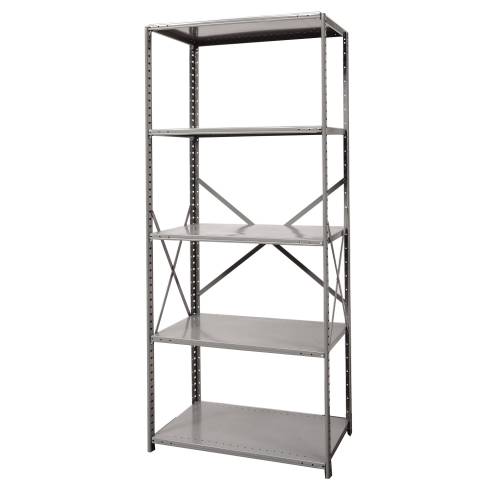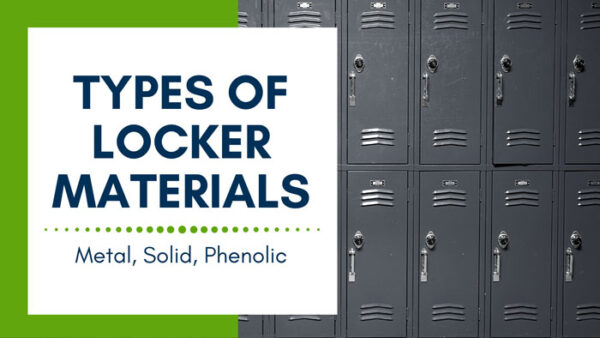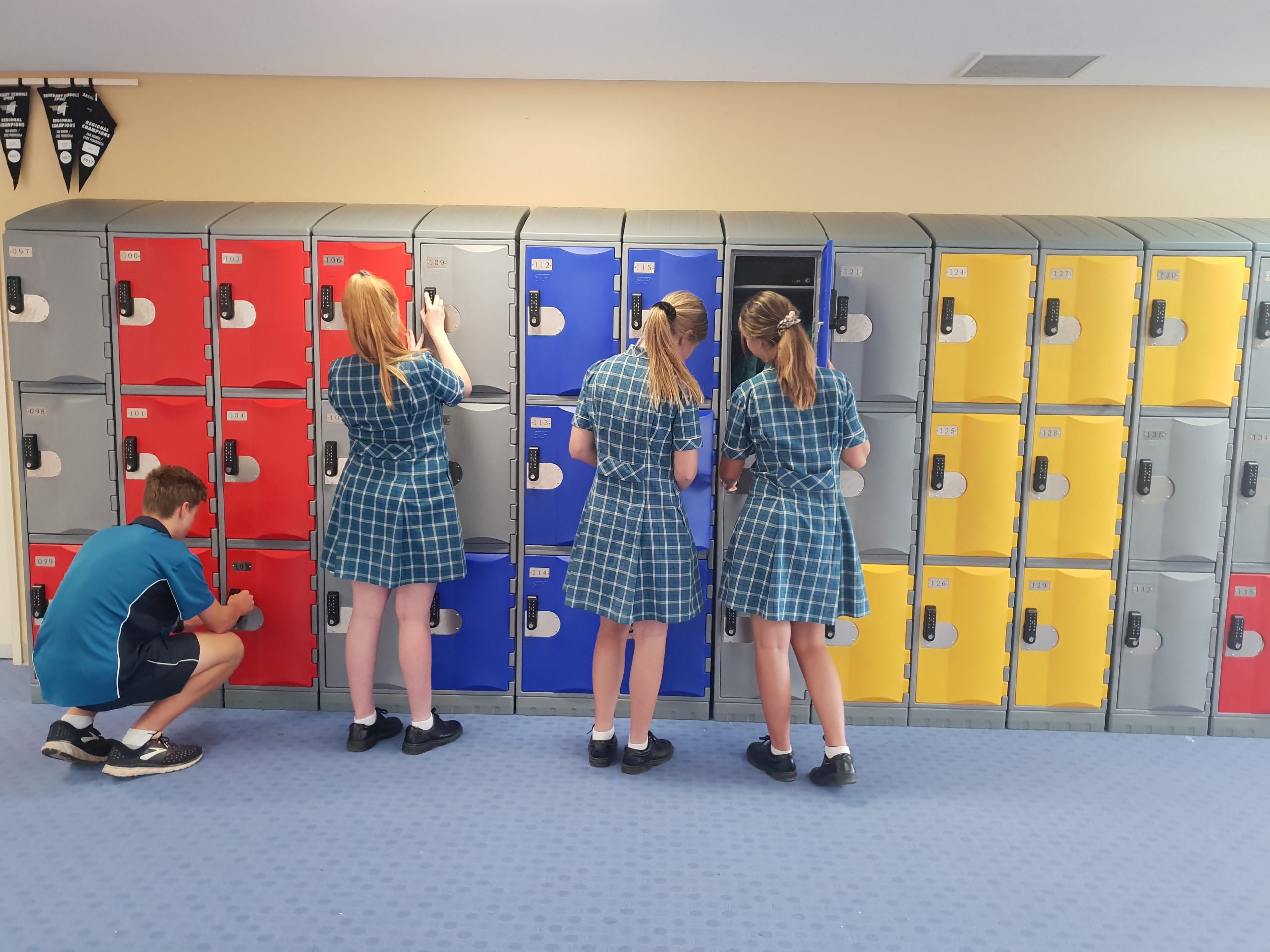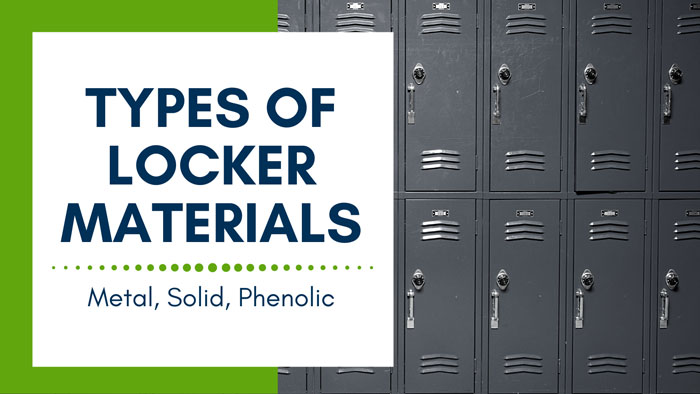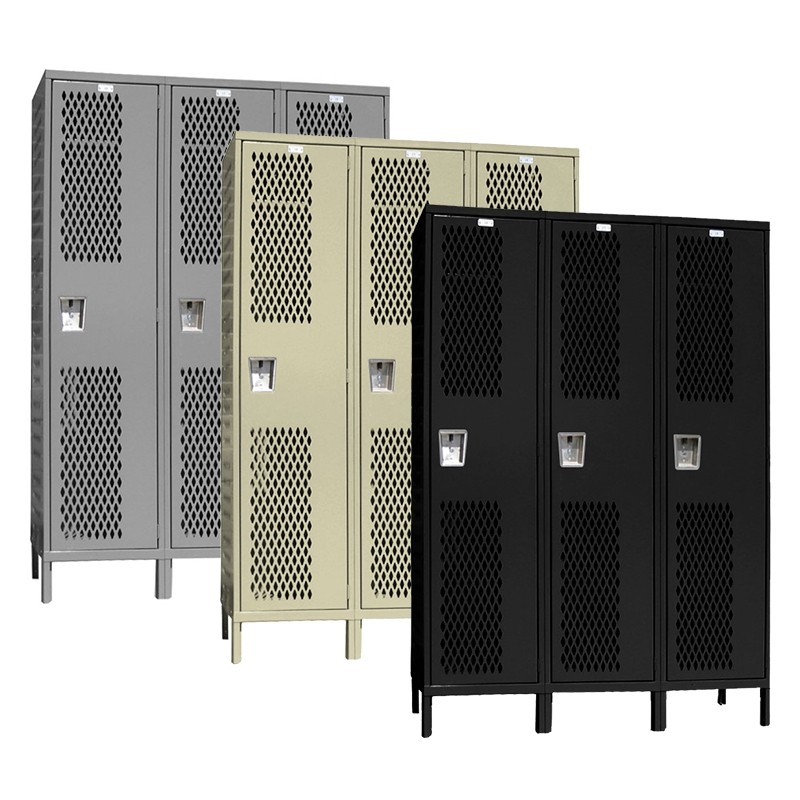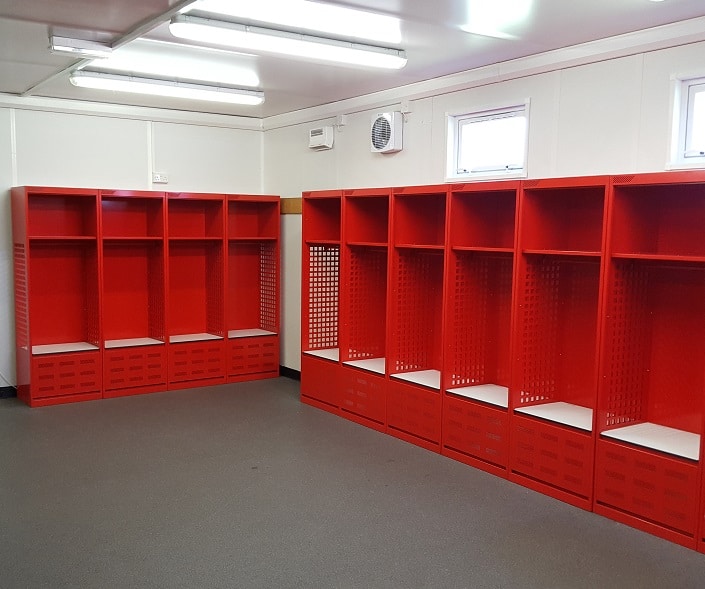When considering lockers for an installation, factors such as the environment they will be in, the level of use and abuse they will encounter, maintenance capabilities, budget, and aesthetic preferences are all important. Below is a detailed comparison of phenolic, metal, and wood lockers based on these criteria:
Phenolic Lockers
- Material Properties: Composed of layers of kraft paper, resin, and decorative paper that are fused together under high pressure and temperature to form a solid composite. This makes them resistant to impact, scratches, and vandalism.
- Durability: Phenolic lockers are extremely durable and can withstand severe environments, heavy use, and abuse without significant damage. They are impact, water, and heat resistant.
- Moisture and Corrosion Resistance: Highly resistant to moisture, phenolic lockers do not rust, corrode, or degrade in humid or wet conditions, making them suitable for places like pools, spas, and gyms.
- Maintenance: They require minimal maintenance. Their non-porous surface is easy to clean and is resistant to graffiti and stickers, which can be removed without leaving marks.
- Aesthetics: Available in a variety of colors and patterns, phenolic lockers can be designed to fit nearly any decor. They have a sleek, modern look that can be maintained over time due to their resistance to fading and discoloration.
- Cost: The initial cost is higher compared to metal or wood lockers; however, their longevity and low maintenance may result in lower costs over time.
- Environmental Impact: Phenolic lockers are often made with recycled materials and are themselves recyclable. They can also contribute to better indoor air quality since they do not off-gas like some wood products.
- Best Suited Environments: Ideal for high-traffic areas, locations with high humidity, or where cleanliness and low maintenance are priorities.
Metal Lockers
- Material Properties: Typically made from cold-rolled steel and coated with a powder finish or paint. They can vary in gauge (thickness), which affects their durability.
- Durability: Metal lockers are strong but can be prone to dents and scratches. Heavier gauge steel can improve their resistance to damage.
- Moisture and Corrosion Resistance: Without proper coating, metal lockers can rust and corrode over time, especially when exposed to moisture or chemicals.
- Maintenance: May require periodic repainting and can show wear and tear more readily than phenolic lockers. Scratches may need touch-ups to prevent rust.
- Aesthetics: Often have a utilitarian appearance, but can be painted in various colors. Over time, paint can chip and fade, which may require refinishing.
- Cost: Generally less expensive than phenolic lockers, making them a cost-effective choice for many installations. However, potential maintenance and replacement costs should be considered.
- Environmental Impact: Manufacturing and painting metal lockers can have more environmental impact, and there are concerns about eventual rust and disposal.
- Best Suited Environments: Suitable for dry environments and where budget is a significant consideration, such as schools, offices, and industrial settings.
Wood Lockers
- Material Properties: Made from natural wood or wood veneers, often with a protective laminate or sealant. The quality and durability can vary significantly depending on the type of wood and construction.
- Durability: Wood lockers can be durable, but are generally more susceptible to scratches, dents, and moisture damage compared to metal or phenolic.
- Moisture and Corrosion Resistance: Wood is naturally more vulnerable to moisture and requires sealants for protection. It can warp, swell, or rot in humid conditions if not properly treated.
- Maintenance: Wood lockers may require more maintenance to preserve their appearance, including refinishing and repairing scratches or damage from impact.
- Aesthetics: They offer a classic, elegant look that can provide a warm and high-end feel to locker rooms, especially in private clubs, spas, or executive settings.
- Cost: Can vary widely based on the type of wood and construction quality. Solid wood lockers tend to be the most expensive, while laminate or veneer options are less so.
- Environmental Impact: The sustainability of wood lockers depends on the source of the wood and the chemicals used in laminates and finishes.
- Best Suited Environments: Best for lower-traffic areas where aesthetics are a priority and the environment is controlled to prevent moisture damage.
When deciding which type of locker to choose, one should weigh the specific needs of the facility against these factors. For example, in a high-end hotel or a country club, the aesthetic appeal of wood might outweigh the benefits of durability that phenolic offers. In contrast, in a public school or a municipal swimming pool, the durability and low maintenance of phenolic lockers might be the most critical factors.

